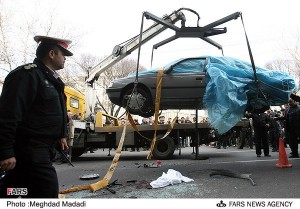The First Rule of the Fight Club…
I’ve been waiting to comment on the news that one of the SEALs that killed Osama bin Laden has a book coming out on September 11.
The publication will undoubtedly be yet another telling episode in our government’s asymmetric treatment of secrecy, but thus far it is too soon to say how. After all, when a SEAL wants to “correct the story,” does he plan to engage in a little JSOC score-settling (I heard rumors the Rangers and the SEALs had competing versions not long after the operation). Will he reveal details that change our understanding of Pakistani knowledge of the operation? Or will he significantly upend the myth Obama’s team has spun about it? All were–and probably still are–possible.
In any case, the book publication will present an interesting challenge for the Obama Administration, which has gone to great lengths to prevent or disincent publication of other books revealing secret information. Nevertheless, the completely arbitrary system for prepublication review seems to encourage people to bypass the system. (This SEAL has already planned to donate much of the proceeds of the book, following a lead set by Ishmael Jones, which takes away one of the tools the government might use against him.)
Finally, there’s the political problem Obama will have. It’ll be hard for the Administration to villainize this SEAL the way it has given others. After all, the SEAL played a key role in half of Obama’s re-election bumper sticker: “Osama bin Laden is dead, GM is alive.” Either he’s a hero for killing OBL, or he’s not, right?
It’s against that background that I read the exposure–first by a Fox News Pentagon reporter, citing “multiple sources,” and then by Craig Whitlock, citing “Pentagon sources”–of the SEAL’s real identity. Given that the Pentagon was sharing (or at least confirming) the SEAL’s identity to the WaPo, then this line from the SOCOM spokesperson is rather ominous.
And Col. Tim Nye, a Special Operations Command spokesman, said the author “put himself in danger” by writing the book.
“This individual came forward. He started the process. Read more →

